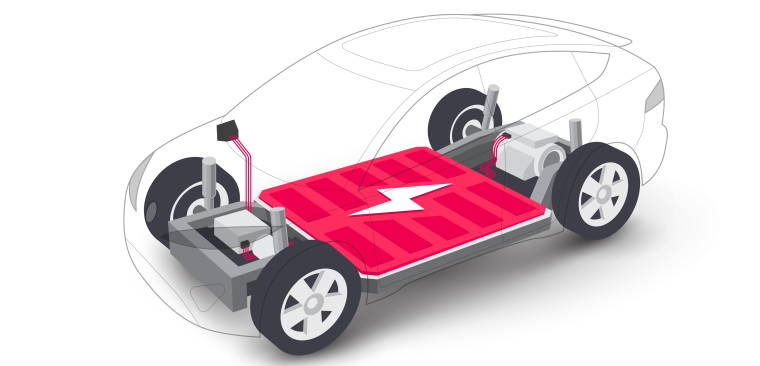Difference Between Electric Car Batteries and Standard Car Batteries
Jack Dreyer | Friday 11th February 2022 11:30am

Anyone thatís ever driven an electric car will be able to tell you the main difference between it and a standard vehicle is the battery - but do you know why they are different? Is it their size? How they operate? How long they can run?
Well, itís actually all of the above and more - which makes it important to understand the differences between an electric car battery and a normal one. Read on to find out more.
The makeup of your car battery
While electric car batteries might seem like something particularly modern, the technology is very similar to many batteries you likely use in your day to day life. Smartphones and laptops for example use lithium-ion batteries - and itís this same battery youíll find in your electric car, albeit on a much larger scale.
Standard cars most often use lead-acid batteries. While rechargeable, they arenít powerful enough to power a car on its own, yet their reliability makes them a common choice for standard cars in order to power on the engine and accessories such as lights, radios, and windscreen wipers.
If you opt for a hybrid vehicle though, you may find something different altogether. While some hybrid vehicles can use lithium-ion batteries, some opt to use nickel-metal hydride due to their cheaper cost and usefulness in dealing with colder temperatures.
How long the car battery holds its charge
You probably know a standard car relies on its battery to help turn on the car and its engine - but once this happens, the alternator and the engine take over to power the car.
Due to the lack of an engine, electric cars rely on the battery a whole lot more. Not only is it used to power the car, it then continuously discharges energy as the car runs to power it.
As a result, electric cars need a much stronger and longer-lasting battery. While a standard car battery will last around 2-3 months before needing a charge, an electric car battery will need charging far more often. Obviously the more you drive your electric car, the more often youíll need to charge it, but you can expect to charge it around every 250 miles.
The size of the car battery

As an electric car battery needs to power much more of the vehicle, they need to be bigger in order to do so. While your standard car battery weighs around 18kg, an electric car battery will normally come in at a far larger 454kg.
Due to its size, you wonít find an electric car battery in the front or back of your car like a standard battery. Most electric car batteries are found in the centre of the car under its flooring, which is done to help better distribute its weight evenly.
Their bigger size also means it can hold more charge, ensuring it has the juice it needs to get you from A to B without issue.
Understanding your car battery
Whether you have an electric car battery or a standard one, itís important you know how to care for it. For more information on car batteries, be sure to check out our guide on changing a car battery, as well as our FAQ on car batteries.
Any facts, figures and prices shown in our blog articles are correct at time of publication.
Featured Articles
Is it Illegal to Drive With One Headlight?
Saturday 19th July 2025
Wondering if itís illegal to drive with one headlight? Learn about the safety risks and penalties of illegal blown bulbs and why you should fix them promptly.
Air Con in EVs & Hybrids: Experts Answer Your Questions
Monday 30th June 2025
Does air con drain EV batteries? Can you use the air con while charging an electric car? Find out the answers to these questions & more from Kwik Fitís experts.
Why Is Your Car Making a Noise? Fixes & Tips
Friday 13th June 2025
When your car starts making unexpected noises, it can certainly be quite disconcerting; it may be nothing to worry about, but hereís what you need to know.









